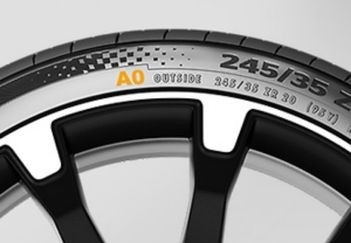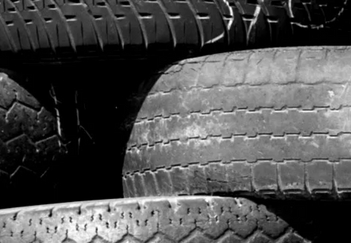
December 01, 2022
How Your Tyres and Wheels Work Together
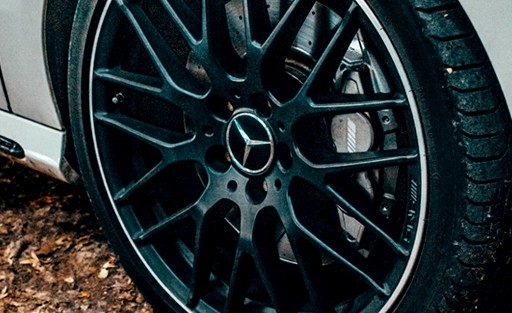
What Are Tyres?
Tyres are the only part of your vehicle that touches the road. They carry the weight of your ride, propel it forward and help it stop when needed.
Tyres are made from various materials, such as rubber (natural and synthetic), nylon, polyester and others and are classified according to numerous categories. Here are some of them:
• Vehicle (passenger car, SUV, light truck, trailer )
• Terrain (all-terrain, mud-terrain, highway-terrain)
• Weather (all-season, summer, winter)
• Tread pattern (symmetrical, asymmetrical, directional, directional/asymmetrical)
Also read: Tyre Number Meanings Explained in Full
Why Are Tyres important?
Tyres are vital to your ride because they directly interact with the road and without them, your car won't go anywhere. Because of these unique features, they can provide:
• Support for your vehicle's load
More accurately, the air pressure inside your tyres bears the weight. Tyres with poor inflation cannot hold up your vehicle and perform their best. Underinflation can lead to flat tyres or blowouts, resulting in fatal accidents.
• Good handling
Handling is how smoothly and precisely your vehicle responds to your steering, turning, accelerating and braking demands. If your tyres are in top condition, you feel in control of your ride with little effort. Poorly maintained tyres on the other hand will make it that much more difficult for you to control your car.
• Efficient traction
Tyres have different tread patterns that boost grip and traction on different surfaces. Mud tyres, for instance, have huge tread blocks that "bite" on uneven surfaces and large voids in between to evacuate mud, rocks and other debris. Meanwhile, road tyres have smaller voids, which boost grip and braking in wet conditions and prevent hydroplaning. All-terrain tyres have a combination of pavement and off-road ability—having a chunkier tread than a road tyre and softer rubber for a better grip on rough terrains.
• Reduction of road noise and vibrations
Tyre makers have developed technologies that lower noise and act as a shock absorber to improve your ride comfort. These include "variable-pitch" tread designs, which use different block and siping patterns on the contact patch to cancel out noise. Pirelli has its Noise Cancelling System, which absorbs the tyre's noise and vibrations in its circumferential wall.
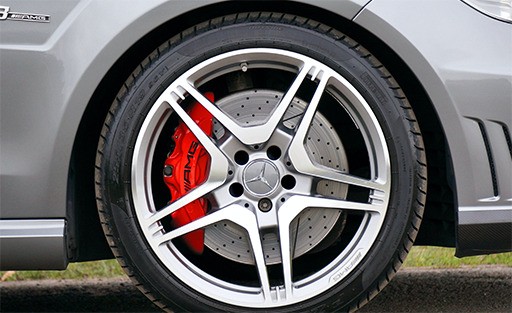
What Are Wheels?
The wheel is often credited for being man's greatest invention, with tyres being an offshoot of its birth and development.
What are the differences between tyres and wheels?
While wheels (sometimes called rims) are the round metal parts attached to your vehicle's axles, tyres are the rubber casings you fit on your wheels.
Wheels can be made of these materials:
• Steel - heavier and more affordable, often used for commercial and off-road driving.
• Aluminum Alloy – typically made with aluminium, magnesium, or nickel alloys, lighter and can be easily fashioned into different designs.
• Chrome – not a wheel material but a plating process that gives wheels a shiny and eye-catching finish
Also read: What's the Difference Between Steel and Alloy Wheels?
Why are Wheels Important?
Wheels are essential for vehicular motion. They also have the power to:
• Convert petrol into energy
Engines may power your car, but these rely on your wheels to move you forward.
• Directly affect tyre size
Choosing your tyres largely depends on wheel size. While the tyre's diameter needs to fit your wheel exactly, its width can be a bit more flexible. For example, you can fit a wider tyre (thicker sidewalls) for off-roading purposes to shield your wheel from rocks and other debris.
• Impact vehicle performance
Like tyres, changing your wheel size affects your vehicle's handling. A wheel with a smaller diameter can give better cornering abilities because each rotation travels a shorter distance. This allows the wheel to adjust more accurately to your inputs, preventing understeer.
Also read: Your Guide to Wheels: Rim Width, Fitment, Offset and More!
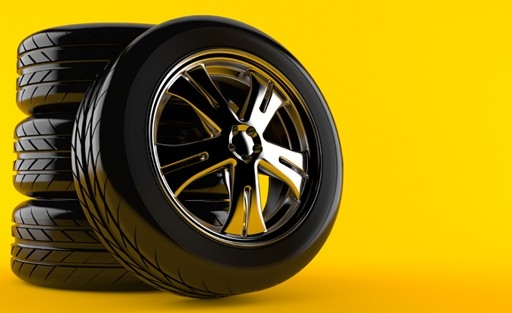
5 Ways Your Tyres and Rims Work Together
After learning how your tyres and wheels work to keep you rolling on the ground, it's important to know that one can't function without each other. Here are five ways that show the critical relationship between tyres and wheels:
1. Wheels provide the structural integrity tyres need to stay attached to the vehicle.
2. Wheels put the tyres in motion, but the tyres create friction with the ground to move the vehicle forward.
3. Wheels support the tyres, helping them bear the vehicle load.
4. Wheels connect tyres to the car's braking and steering mechanisms.
5. When a flat tyre happens, the wheels may keep your car moving, but you lose control. This highlights the vital role of tyres in vehicular handling and your safety.
Also read: Run Flat Tyres – Your Essential Guide
How do you ensure that your car wheels and tyres are always in good condition? Good driving habits, proper inflation, and regular maintenance such as tyre rotation, wheel balancing, and wheel alignment are some basic ways to keep this amazing tyre-and-wheel tandem working smoothly and efficiently!
Looking for Rims and Tyres for Sale?
Look no further if you're looking for cheap wheels and tyres. Tyroola has got you covered! Because we sell online, we can afford to give you prices much lower than what traditional tyre shops offer. Our wide product selection gives you more choices—from premium to value and budget options.
Check out our wheels and tyre deals that boost your savings and safety on the road!

